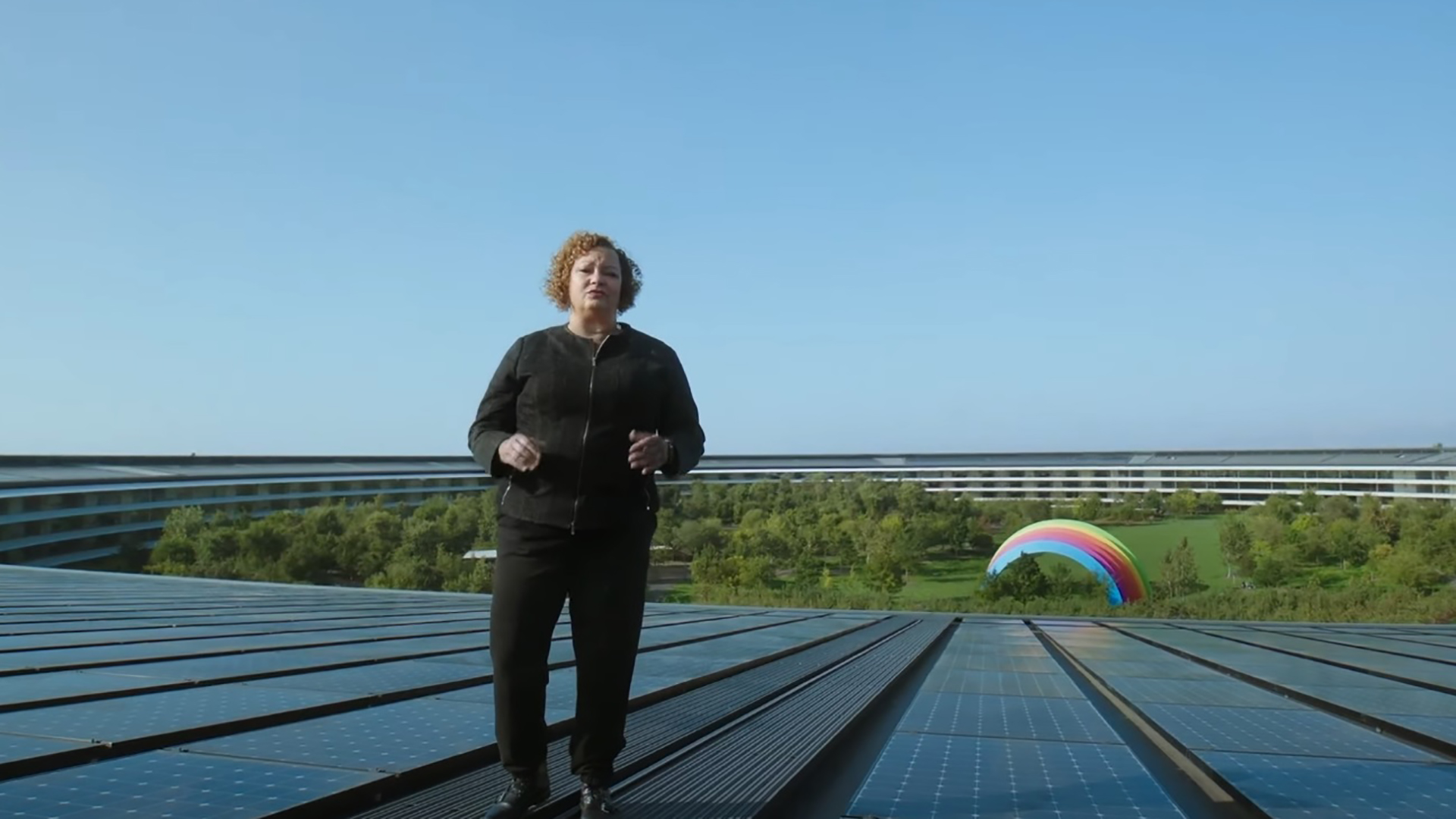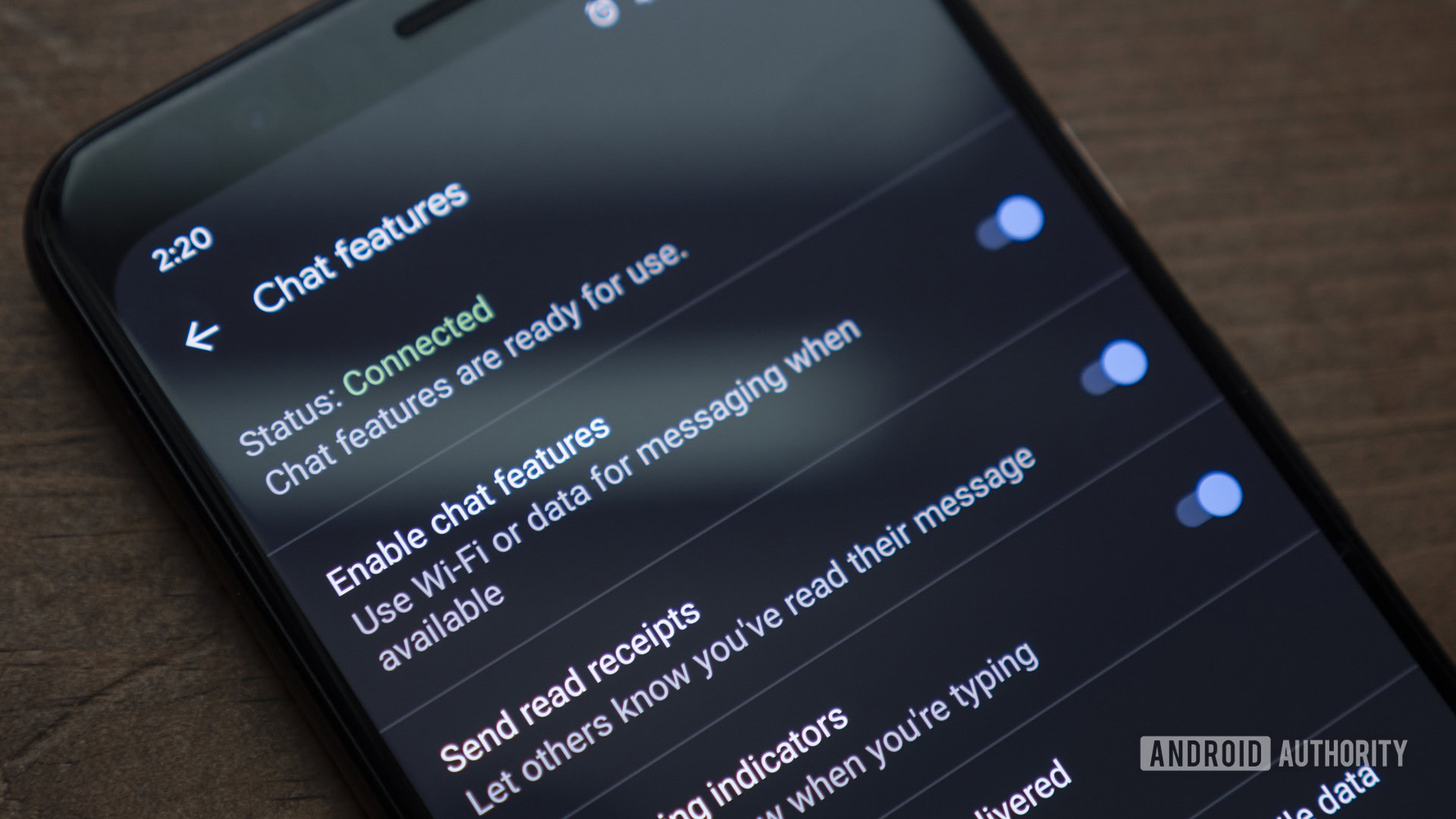Robert Triggs / Android Authority
Update, September 16, 2022 (12:25 PM ET): The full video of Tim Cook’s statements on RCS is now available, which was not the case when we first published this article. We have slightly tweaked the original text below to reflect this change.
You may have heard about Tim Cook’s recent comments about rich content services (RCS) messaging. In an on-stage Q&A session last week, an attendee asked whether or not there were plans for Apple to adopt RCS, which would allow Android’s native messaging apps and the iPhone’s native messaging app to communicate without relying on SMS/MMS protocols. The Apple CEO’s response shot down any hopes: “I don’t hear our users asking that we put a lot of energy on that at this point.”
That’s disappointing, but the real kicker was what happened next. In response to Cook, the questioner says, “I can’t send my mom certain videos,” referring to how iPhones can’t send Android phones high-resolution media. Cook bluntly responded with the quip that’s been on everyone’s mind since:
Buy your mom an iPhone.
Now, this might just seem like an off-the-cuff joke. Cook probably thought it was witty. We don’t have an audio recording of the interview, but it wouldn’t surprise me if most of the audience chuckled after he said it. Update: We do have full audio and video of the statement and it’s exactly as we expected. The relevant bit starts at 1:00:15.
But I don’t hear anything funny in this statement. I hear a few other things, though: hypocrisy, dismissiveness, and corporate greed.
The opposite of green initiatives

When people think of Apple, they probably think of a progressive company that really cares about the environment. Apple touts its carbon-neutral status at every opportunity, for example. It claims it removed the charger from iPhone retail boxes to lessen the strain on the environment. It has robust trade-in programs to keep its products going longer. Even its iOS update policy — over five years of promised support — props up its eco-friendly image.
Apple really wants you to think it’s an eco-friendly brand. But is it, really, or is it just trying to sell more stuff?
However, “buy your mom an iPhone” spits in the face of all that posturing. It’s a statement that strongly suggests Cook is not interested in working together with consumers (or competitors) to allow people to keep the tech they already own so it doesn’t end up in a landfill. It would appear that Apple doesn’t care about people keeping their phones for longer to prevent e-waste — it just cares about people keeping iPhones for longer.
This is a similar problem to the backlash Apple faced when it removed chargers from iPhone boxes. Yes, shipping smaller, lighter boxes that have less plastic in them is undoubtedly good for the environment. However, Apple also earned billions of dollars by doing this. It makes one wonder what the real reason was behind Apple’s decision.
These situations suggest Apple’s green initiatives aren’t altruistic but just another form of branding.
These situations are not a good look for Apple. They suggest Apple’s green initiatives are not altruistic but just another form of branding. If a company’s green policies only exist as a way to shore up profits, they are not green policies. Sure, a green policy can help profits by happenstance, such as when consumers stick with a brand because they appreciate its low environmental impact. But there are only two reasons a company has green policies: because it actually cares about the environment or because it wants to look like it cares about the environment.
This is a PR masterclass on what not to do

Tristan Rayner / Android Authority
Outside of the eco-unfriendliness of this situation, Cook’s “just buy your mom an iPhone” statement does not address the Q&A attendee’s real issue, which they summed up quite succinctly: “I can’t send my mom certain videos.” Remember, this questioner is an iPhone user! This would’ve been the perfect PR opportunity for a CEO to show that he understands the pain points of his own customers. Cook may not be able to talk about Apple’s future plans — especially if they don’t exist — but he could’ve given a more considerate response: “I understand that’s frustrating for you. I will take this under advisement and see what we can come up with.”
And this wouldn’t have even been a blip on the radar.
Android users and iPhone users should be able to communicate more effectively, and buying mom an iPhone is not a solution.
However, in my opinion — from both an iPhone and Android user standpoint — it would behoove Apple to adopt RCS. Doing so would allow iPhone and Android users to communicate more effectively using the products they already own. This would be a pro-consumer move because it would make everyone’s lives easier. It would also be a pro-environment move because it would encourage people to stick with their current device and platform. And it would also be a pro-community move, since “green bubble hate” is a real and disturbing problem. There are, quite literally, no downsides for consumers if Apple were to adopt RCS. The only downsides are to Apple’s bottom line.
There are no downsides for consumers if Apple were to adopt RCS. The only loss would be in Apple’s bottom line.
I’ll be the first to admit that RCS isn’t perfect. There are many legitimate reasons why Apple would think going after RCS integration would be a waste of time and resources. But rejecting the protocol entirely without a public explanation and shutting down this questioner’s concerns is not a sign of good leadership — and also comes off as rude.
Apple can reject RCS, but the overall problem is still there

The question on my mind, ultimately, is whether or not Apple can continue to ignore this issue. So far, the company has weathered the storm, but the heat is turning up. Google is coming right out and directly attacking Apple now. Sites like Android Authority have been long fed up with iMessage incompatibilities, and even iPhone die-hards are tired of it.
The solution might not be through adopting RCS. It certainly won’t be through opening up iMessage, as internal documents made it clear Apple won’t do that. But I feel like the company will eventually need to do something to help Android users communicate more effectively with iPhone users, and vice versa. It’s been complacent with — and profiting from, it needs to be said — the “green bubble hate,” it’s essentially ignoring Google’s taunts, and, as Cook demonstrates here, it’s fine shrugging away pleas from its own users. But can it ignore this problem forever?
See also: Why iMessage is such a big deal
Let’s go back to the first part of Cook’s response to the person at the Q&A event. He said he doesn’t “hear our users asking that we put a lot of energy [into RCS]” as a defense to why the company isn’t working on this problem. In all seriousness, that is total BS. Was anyone asking Apple to remove the headphone jack? No, but it did that anyway. No one wanted Apple to remove the SIM card tray either, but it had no problem doing it. Apple has a long history of doing all sorts of things its users actively don’t want, so Cook’s argument that users would need to want RCS support for Apple to pursue it is nonsense.
No one asked Apple to remove the SIM slot or the 3.5mm plug, yet here we are.
This whole fiasco makes Apple look really bad. It makes it seem like the company doesn’t care about the environment, doesn’t care about anyone who doesn’t own an iPhone, and doesn’t even care about those who do own iPhones. I’d like to think that’s not the case.
I know Apple fans must be accustomed to ignoring these kinds of revelations by now. After all, the company has made many anti-consumer moves, and people still defend it and love buying its products. But this occasion was particularly egregious, so I hope they don’t let it slide.



















Discussion about this post